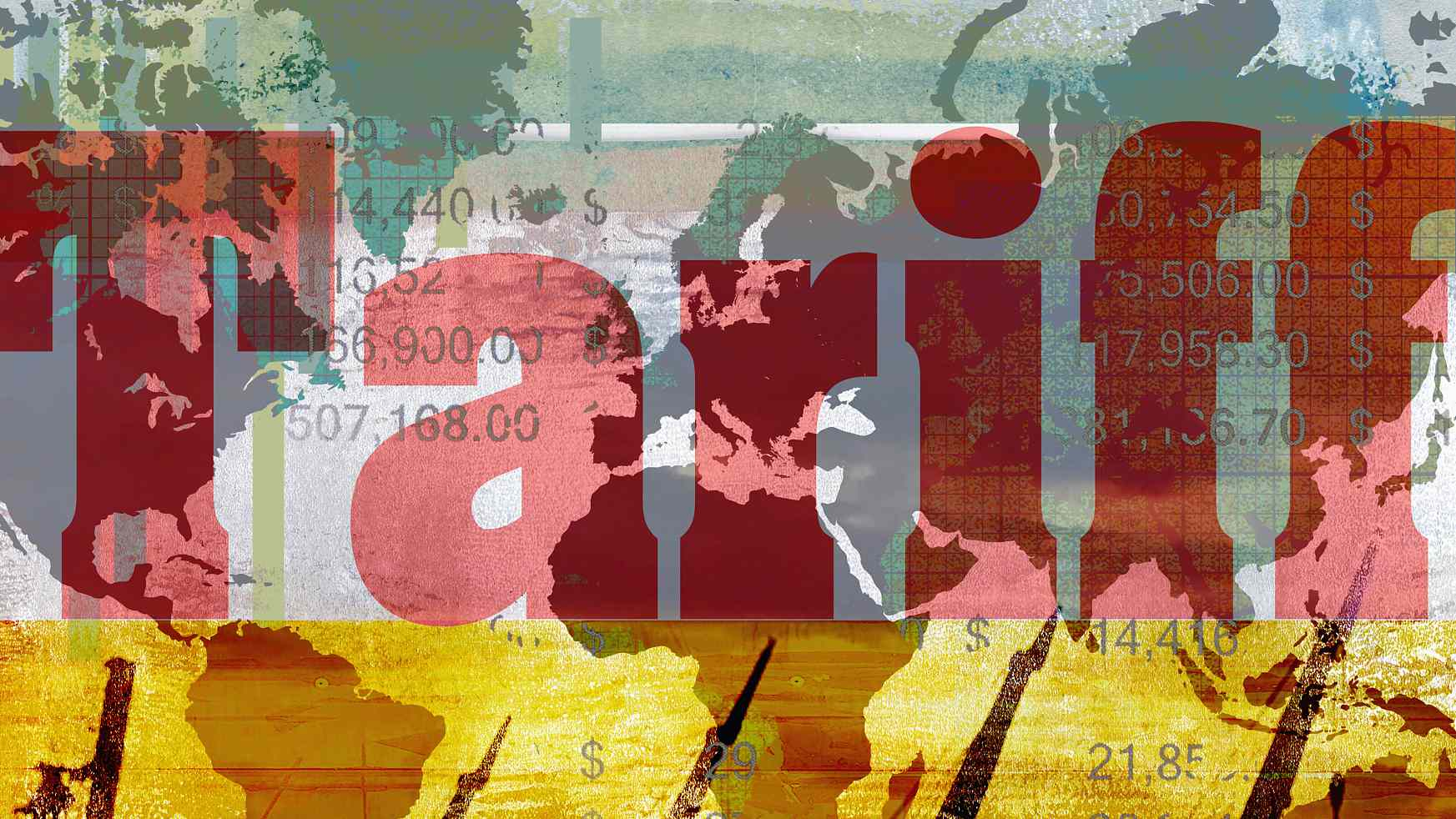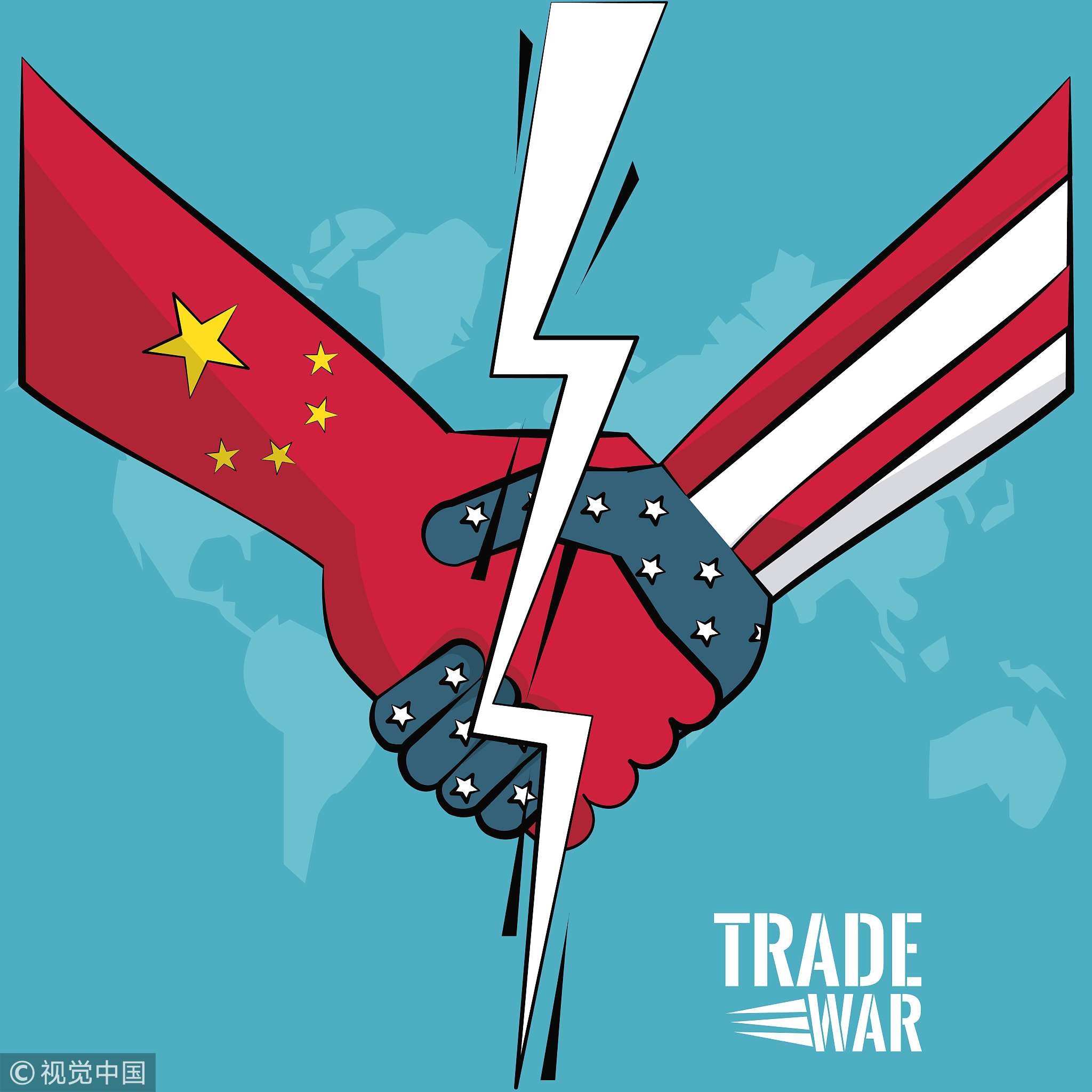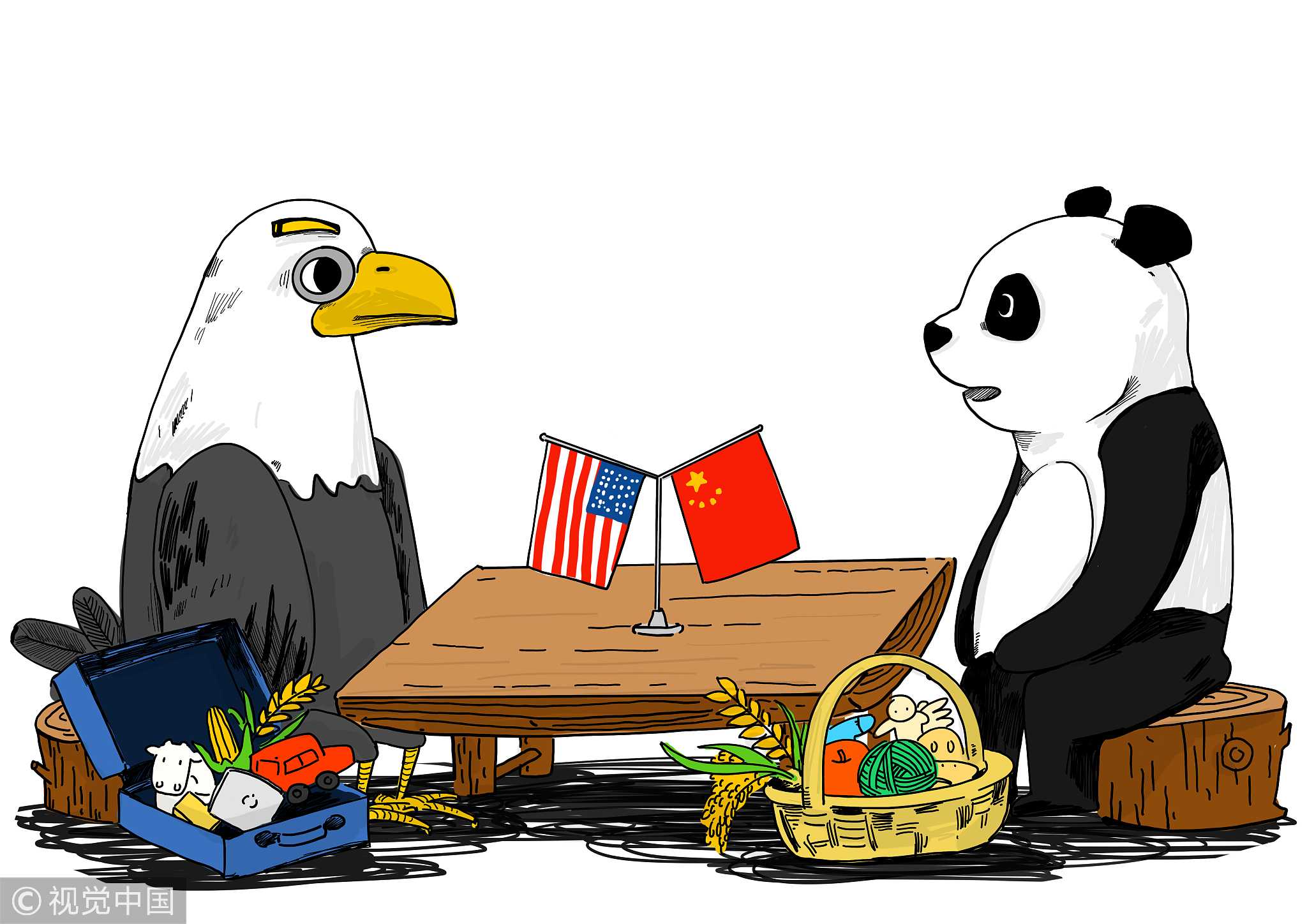
Opinions
22:34, 07-Jan-2019
Opinion: How to minimize the risk of a trade war?
Updated
21:38, 10-Jan-2019
Cheng Dawei

Editor's note: Cheng Dawei is a professor at the School of Economics, Renmin University of China. The article reflects the author's opinions, and not necessarily the views of CGTN.
When I was in Guangzhou attending China Going Global 50 Forum, I got a chance to meet and talk to local businessmen about how the trade war between China and the U.S. is impacting China's small businesses.
Guangdong Province is a leading commercial and industrial province in China. Business people from all around the world come here to attend the forum every year.
At China SME Going Global 50 Forum, the trade war is a hot topic among business people who have expectations that the negotiations would ease the tensions between the two sides, hoping for a prosperous year in 2019.
Last year, Washington imposed additional tariffs on Chinese imports worth 250 billion U.S. dollars while accusing Beijing of stealing its technology. Beijing responded with retaliatory tariffs on the same amount of U.S. goods. The tariffs have impacted Guangzhou's business.
A wine importer told me "Many Cantonese immigrated to North America in the early 20th century and now they have brought some wine business back to China."
The trade war has made California wines 50 percent more expensive in China which has had a negative impact on wine sales. Last year, China imposed sanctions on 128 American products. The wine was the one of the first to be hit with a 15 percent increase in tariffs.
According to California Wine Institute, U.S. wine exported to China was up 14 percent in value to 38.4 million U.S. dollars in the first six months of 2018 compared to the same period last year despite the continued threat of increased tariffs on China.
The wine importer showed me some California wines from Napa and Livermore Valley saying if future negotiations fail, the price of these wines would continue to surge.
How to minimize the risks of the trade war? That is the key question being raised by the Chinese business sector. If the U.S. insisted on aggressive protectionism which would cause the virtual collapse of global trade, business communities have to adopt corresponding measures to defend their local industries.

A trade war between China and the U.S. /VCG Photo
A trade war between China and the U.S. /VCG Photo
In order to minimize the risks, it is important that companies carry out a risk assessment based on the type of threats. The following risk areas must be carefully considered: economic, geopolitical and technological.
At the same time, the enterprises should carry out a political-legal, economic and technological analysis to understand the risks and formulate a risk mitigation strategy.
At the forum, one Chinese company introduced their legal strategy for going to Kazakhstan. The company improved its legal awareness by studying the relevant laws of the country. They respect the local religions, culture, and customs and uphold social responsibility, build a harmonious relationship with local residents.
Facing the trade war, some companies may think about leaving China, looking to transfer their work to other Asian countries. But some Guangzhou and HK businessmen told me, they will keep their operations in China.
They had visited some Asian countries already where the labor cost is cheaper than China, but the productivity is lower. They told me: "Only China has mass hard-working, highly trained workers." Besides, China has a great infrastructure and logistics system.
Mr. Yu, a textile factory owner in Guangzhou, told me that he is thinking to find a new factory site in other regions. His factory is located in Kaiping, a county-level city in Guangdong Province. There were 600 textile and clothing factories in the 1990s, providing more than a third of the global market for jeans, most of which were OEMs.

A trade war between China and the U.S. /VCG Photo
A trade war between China and the U.S. /VCG Photo
First, Yu went to Vietnam, then he went to Suzhou (located in the Yangtze River Delta). Compared with Suzhou, Vietnam has a lower labor cost, but Vietnam has less capacity, the Guangzhou factory needs more warehouses, good raw material supply. Suzhou has a more mature business environment. And the most important, Suzhou offered good investment policy support.
Yu thinks that changing factory location is not the best risk management strategy. "Business to survive in the trade war, the best solution is innovation," he said.
Now, most Chinese entrepreneurs recognize what is really going on in the trade war is not about trade; it is about innovation in the 21st century. Trade war pushes China's business people into a corner and forces them to rely on their innovation.
Huawei has been working on its own operating system for years, it will offer local alternatives for American products, buffer the impact of trade protectionism.
Textile industry is a traditional industry. During the initial years of China's economic reforms, in the 1980s, the textile industry was positioned to provide market demand for clothes so that people can have more clothes.
Now, Yu takes environmental protection, fashion, and innovation as new goals and has invested huge money in his innovation program.
The U.S. government worries about China's industrial and IP policy which has transformed China's economy from a low-cost assembler into a global leader of cutting-edge industries in the 21st century. Actually, the true innovators are entrepreneurs; they know the market and know how to transform knowledge into products.
Thanks to the trade war, it awakes entrepreneurship in China. What Chinese government should do is to protect entrepreneurship and innovation.
(If you want to contribute and have specific expertise, please contact us at opinions@cgtn.com)

SITEMAP
Copyright © 2018 CGTN. Beijing ICP prepared NO.16065310-3
Copyright © 2018 CGTN. Beijing ICP prepared NO.16065310-3